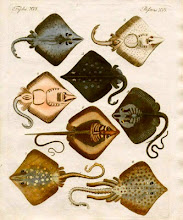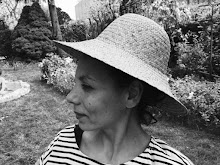CAT IN AN EMPTY APARTMENT
Die—you can't do that to a cat.
Since what can a cat do
in an empty apartment?
Climb the walls?
Rub up against the furniture?
Nothing seems different here
but nothing is the same.
Nothing's been moved
but there's more space.
And at nighttime no lamps are lit.
Footsteps on the staircase,
but they're new ones.
The hand that puts fish on the saucer
has changed, too.
Something doesn't start
at its usual time.
Something doesn't happen
as it should.
Someone was always, always here,
then suddenly disappeared
and stubbornly stays disappeared.
Every closet's been examined.
Every shelf has been explored.
Excavations under the carpet turned up nothing.
A commandment was even broken:
papers scattered everywhere.
What remains to be done.
Just sleep and wait.
Just wait till he turns up,
just let him show his face.
Will he ever get a lesson
on what not to do to a cat.
Sidle toward him
as if unwilling
and ever so slow
on visibly offended paws,
and no leaps or squeals at least to start.
Translated from the Polish by Clare Cavanagh, Stanislaw Baranczak
THE END AND THE BEGINNING
After every war
someone has to clean up.
Things won't
straighten themselves up, after all.
Someone has to push the rubble
to the sides of the road,
so the corpse-laden wagons
can pass.
Someone has to get mired
in scum and ashes,
sofa springs,
splintered glass,
and bloody rags.
Someone must drag in a girder
to prop up a wall,
Someone must glaze a window,
rehang a door.
Photogenic it's not,
and takes years.
All the cameras have left
for another war.
Again we'll need bridges
and new railway stations.
Sleeves will go ragged
from rolling them up.
Someone, broom in hand,
still recalls how it was.
Someone listens
and nods with unsevered head.
Yet others milling about
already find it dull.
From behind the bush
sometimes someone still unearths
rust-eaten arguments
and carries them to the garbage pile.
Those who knew
what was going on here
must give way to
those who know little.
And less than little.
And finally as little as nothing.
In the grass which has overgrown
reasons and causes,
someone must be stretched out
blade of grass in his mouth
gazing at the clouds.
Transl. by Joanna Trezeciak
REPORT FROM THE HOSPITAL
We used matches to draw lots; who would visit him.
And I lost. I got up from our table.
Visiting hours were just about to start.
When I said hello he didn't say a word.
I tried to take his hand--he pulled it back
like a hungry dog that won't give up his bone.
He seemed embarrassed about dying.
What do you say to someone like that?
Our eyes never met, like in a faked photograph.
He didn't care if I stayed or left.
He didn't ask about anyone from our table.
Not you, Barry. Or you, Larry. Or you, Harry.
My head started aching. Who's dying on whom?
I went on about modern medicine and the three violets in a jar.
I talked about the sun and faded out.
It's a good thing they have stairs to run down.
It's a good thing they have gets to let you out.
It's a good thing you're all waiting at our table.
The hospital smell makes me sick.
STARVATION CAMP NEAR JASLO
Write it down. Write it. With ordinary ink
on ordinary paper; they weren't given food,
they all died of hunger. All. How many?
It's a large meadow. How much grass
per head? Write down: I don't know.
History rounds off skeletons to zero.
A thousand and one is still only a thousand.
That one seems never to have existed:
a fictitious fetus, an empty cradle,
a primer opened for no one,
air that laughs, cries, and grows,
stairs for a void bounding out to the garden,
no one's spot in the ranks.
It became flesh right here, on this meadow.
But the meadow's silent, like a witness who's been bought.
Sunny. Green. A forest close at hand,
with wood to chew on, drops beneath the bark to drink--
a view served round the clock,
until you go blind. Above, a bird
whose shadow flicked its nourishing wings
across their lips. Jaws dropped,
teeth clattered.
At night a sickle glistened in the sky
and reaped the dark for dreamed-of loaves.
Hands came flying from blackened icons,
each holding an empty chalice.
A man swayed
on a grill of barbed wire.
Some sang, with dirt in their mouths. That lovely song
about war hitting you straight in the heart.
Write how quiet it is.
Yes.
Translated from the Polish by Clare Cavanagh, Stanislaw Baranczak
Subscribe to:
Post Comments (Atom)




1 comment:
Hi
It was good to re-read these poems. I ahve always loved first one (Cat)...A very touching poem indeed. I too have wriiten about a poem of Wislawa. You will like it
http://p-g-r-nair.sulekha.com/blog/post/2010/06/life-a-note.htm
(pgrnair@gmail.com)
Post a Comment